Mock drafts are ridiculous. You know this. I know this. The people writing them know this. They're also fun, which is why we all read a million of them before the draft. It's hard enough to predict what 32 teams will do, but it's downright impossible when you consider how the vast majority of mock drafts avoid projecting trades, which blow the draft order apart. With that in mind, over the past few years, I've decided to swing the pendulum in the opposite direction and put together a mock draft that consists entirely of trades.
Below, you'll find 32 trades involving each of the 32 selections in the first round of the 2017 NFL draft. The trades are intended to be reasonable for both sides while keeping in mind each team's history and style of management. The Browns are more aggressive in trading down and for future picks, while the Dolphins are more likely to move up for the player(s) they want. I'm not suggesting that these trades would necessarily be good ideas for either side or what I would recommend each team do, but it's an attempt to find fair value given the complex motivations and needs of an entire league.
Picks in the 2017 draft are notated with the round and overall pick number, so the 33rd pick (which is the first selection in the second round) would be designated as 2-33. Picks in future drafts are written out. Crucially -- and this is important to note before getting angry -- this is a multiverse in which each trade takes place in its own universe. The Saints trade I propose with the first pick has nothing to do with the Saints trade I throw out at 11.
While I typically measure the actual value of picks using the draft value chart created by Chase Stuart, the reality is that more teams will measure their trades using something closer to the chart generated by Jimmy Johnson in the early 1990s. That chart is outdated for a number of reasons, but traditional teams are still applying it, so it's more relevant to this conversation. For teams with an analytics bent like the Browns and Ravens, I'll lean heavier on the Stuart chart.
Let's just start with total lunacy and go from there:
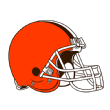
1. Cleveland Browns
Patriots get: 1-1, 2018 conditional fourth-round pick, WR Josh Gordon (from Browns)
Saints get: CB Malcolm Butler (from Patriots); 2-53, QB Cody Kessler (from Browns)
Browns get: QB Jimmy Garoppolo, 2018 conditional fifth-round pick (from Patriots); 1-11, 3-76, LB Stephone Anthony (from Saints)
This is a three-way trade designed to solve everyone's problems. The Patriots are biding their time with Garoppolo and Butler, both of whom are due to hit unrestricted free agency in 2018 and attract deals the Patriots would be unlikely to match. It's possible the Patriots could franchise Garoppolo, but as I've written about in the past, it's at least difficult to imagine agent Don Yee -- who represents both Garoppolo and Tom Brady -- wanting to keep his quarterbacks on the same team.
The Patriots have floated their desire to get multiple first-round picks for Garoppolo and the 12th overall selection for Butler, but it's hard to see how they have the leverage to pull all of that off, given how teams know they can go after these guys next year while the Patriots will be left with only a pair of third-round compensatory selections in the 2019 draft as a result. The dream of getting three first-round picks for their star players was always going to be hard to pull off, but in this deal, the Patriots settle for the top selection in a draft with a few options at No. 1.
Bill Belichick loves trading down, which he could then do and amass additional selections in what is projected to be a deep class, but he also can just stay put and draft a franchise pass-rusher in Myles Garrett at a relative position of need for the Patriots. Not a bad fallback plan. We'll give the Pats Carolina's fourth-round pick in 2018 through Cleveland, with the selection conditionally improving to a third-round pick (if Garoppolo takes 70 percent of the offensive snaps) or even as high as Houston's second-round pick (if Garoppolo makes the Pro Bowl). They also take a flier on Gordon, whose story is well-documented; the Browns have publicly wavered on bringing back the troubled wideout, but the Patriots have taken a risk on players before, and Gordon's production would make him a franchise-caliber wideout if he stayed on the straight and narrow.
The Saints want Butler, but they don't want to trade the 11th pick, a straight-up deal, for the privilege of acquiring the Super Bowl XLIX hero. They're giving up Anthony, but they soften the blow of losing the 11th selection by moving up 24 picks into the middle of the second round and acquiring Tennessee's second-round selection. We'll also send them Kessler, who was reasonably competent for the Browns in eight starts, albeit all winless. Kessler gives them a developmental prospect behind Drew Brees and Chase Daniel.
The Browns get their franchise quarterback while moving down 10 spots in the first round, leaving them with consecutive selections at 11 and 12. They miss out on Garrett, of course, but in a draft that is deep with pass-rushers, Cleveland shouldn't have trouble adding a useful contributor with one of its six picks in the top 80. The Browns also will get a conditional fifth-rounder back from the Patriots, which should escalate if Gordon breaks out in New England; this will be a fourth-rounder if Gordon plays 50 percent of the offensive snaps and a third-rounder if he racks up 1,000 receiving yards.
They'll also make a Patriots-esque move for Anthony, who fell out of favor with new Saints defensive coordinator Dennis Allen after being taken with the 31st pick of the 2015 draft. The Patriots have gone after linebackers like Kyle Van Noy and Akeem Ayers in the past, but Anthony is a better fit in a 3-4 at inside linebacker, where the Browns can slot him alongside Jamie Collins. This trade is nuts, and there are too many moving parts for it to ever happen. That doesn't make it unfair or implausible.
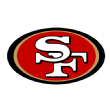
2. San Francisco 49ers
Washington gets: 1-2, QB Brian Hoyer
49ers get: QB Kirk Cousins
Cousins has been linked to a reunion with his former offensive coordinator Kyle Shanahan in San Francisco all offseason. Washington has locked up Cousins for 2017 with the exclusive franchise tag, but there has been no progress on a long-term deal. It would either lose Cousins for free (minus a possible third-round comp pick) next year or be stuck franchising him at a staggering $34.4 million price tag, which is unlikely to be a viable option.
If Washington doesn't think it can bring back Cousins, the time to strike is now. This is likely the best asset it will be able to get in return for Cousins before he leaves, and while Hoyer would be a downgrade, the 31-year-old would be a useful, cheap stopgap for two years with just $8 million heading over to Washington. The 49ers would eat the $4 million they already paid Hoyer as a signing bonus, but something tells me they wouldn't hesitate if it meant getting a franchise quarterback in Cousins.
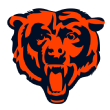
3. Chicago Bears
Jets get: 1-3
Bears get: 1-6, 3-107, DE Sheldon Richardson
The Bears are in a great spot at three, given that they have needs all over on defense and will likely be in line to grab one of four defenders from defensive end Jonathan Allen, cornerback Marshon Lattimore, or safeties Malik Hooker and Jamal Adams. Here's a way for them to end up with two impact defenders. Richardson's stock is low after a disappointing 2016 campaign, one in which he was basically forced out of position by the Jets' depth up front. He's likely to leave New York after this season in free agency, so the Jets could try to move him throughout the draft. Here, they move up three spots and can get one of the defensive backs they need to restock a porous secondary. This values Richardson as equivalent to the 38th pick on the old draft chart, which is high, but the picks are essentially a wash on Stuart's chart without even considering Richardson's value. In this draft, which isn't top-heavy but is very deep, middle-round picks are likely to be more valuable than usual.
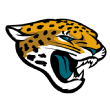
4. Jacksonville Jaguars
Panthers get: 1-4, 4-110
Jaguars get: 1-8, 2-40
The Jaguars are relatively stacked on defense after signing Calais Campbell, A.J. Bouye and Barry Church this offseason, and this is likely to be a defense-intensive portion of the draft. Their biggest need is along the offensive line, but there aren't any offensive linemen worth taking this early. They've been linked to running back Leonard Fournette, but with the Titans, Jets and Chargers between them and Carolina at eight, the Jags could very well move down and grab Fournette with the eighth selection. Carolina could move up for one of the top-tier defensive backs. This trade is pretty close on both the traditional and Stuart charts, too.
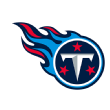
5. Tennessee Titans
Bills get: 1-5
Titans get: 1-10, 3-75, 2018 second-round pick
The Bills didn't really commit to Tyrod Taylor in the long term as much as they kicked the can a little further down the line. Taylor is signed only through the end of the 2018 season, and the Bills can get out of the deal after this year. If they're in love with Deshaun Watson or Mitchell Trubisky and both quarterbacks fall out of the top two, the Bills will have to be worried about the Jets lurking with the sixth pick.
I'm not sure the Bills should be in the business of trading up given their current roster, but if they're all-in for one of these young quarterbacks, they've probably got to sneak ahead of their division rivals. The Titans, who are working from a place of strength with this chit from the Jared Goff trade, can move down five spots and pick up two extra picks as they continue to piece together a compelling roster.
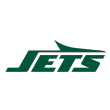
6. New York Jets
Titans get: 1-6, 5-150, WR Eric Decker
Jets get: 1-5, 6-214
Alternately, if the Jets are worried about a team moving ahead of them to grab a quarterback, they can just make their own push for the fifth selection. The Titans are in need of a wide receiver to flesh out their offense, and if they aren't in love with any of the options available at this point of the draft, they can go after help in the secondary with their pick and still acquire a useful player in Decker.
The 30-year-old missed virtually all of the 2016 season after undergoing surgeries on his hip and rotator cuff, but he's only one year removed from a 1,000-yard season despite playing alongside Brandon Marshall (who gobbled up targets) and Ryan Fitzpatrick (who is Ryan Fitzpatrick). The Titans could take a shot on Decker without missing out on anybody they would have drafted at five, although they may want the former Broncos third-round pick to take a pay cut from his $7.3 million base salary.
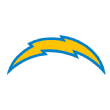
7. Los Angeles Chargers
Cardinals get: 1-7
Chargers get: 1-13, 2-45, 2018 fourth-round pick
The strength of Arizona's team for years has been its secondary, but the Cardinals are suddenly looking thin in their defensive backfield after losing Tony Jefferson, D.J. Swearinger and Marcus Cooper in free agency this offseason. The hope will naturally be that Tyrann Mathieu will look more like the slot cornerback who excelled in 2015 than the guy who was rusty in returning from his second torn ACL and had to play a lot of free safety this past year. The Cards did sign veteran Antoine Bethea, but they could very well trade up to target one of the class's top defensive backs.
If Jonathan Allen somehow falls here, the Cardinals also could target the Alabama standout as a Calais Campbell replacement. The Chargers are another team really looking for offensive line help in a draft that doesn't offer much; they're better off trading for additional depth and maybe using one of the extra picks they get in this deal on a rookie to develop behind Philip Rivers.

8. Carolina Panthers
Seahawks get: 1-8, 3-98
Panthers get: CB Richard Sherman, 2-58
If the Seahawks really do intend to trade Sherman this offseason, Carolina looms as a logical target. The Panthers, who felt the impact of losing Josh Norman a year ago, are a veteran team with a defense capable of competing for a Super Bowl right now. Sherman's contract -- two years at an average of just over $11 million per year -- is totally reasonable for a Panthers team that could create cap space by restructuring Cam Newton's deal.
The Seahawks would be drafting high enough to go after Marshon Lattimore or Gareon Conley, who could be rising toward the top 10. This is the first of several possible Sherman trades you'll see here, and it would be about as good of a deal as the Seahawks could hope to receive given their public stance on dealing him away.
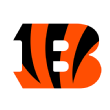
9. Cincinnati Bengals
Chargers get: 1-9, 4-116
Bengals get: 1-7
The Bengals generally stay put on draft day, having traded up once (for Russell Bodine) and down once (with the Patriots in the Chandler Jones-Kevin Zeitler swap) over the past five seasons. This year might be a little different, if only because the Bengals have 11 selections to work with, including compensatory selections in each of the final four rounds. They probably don't need to draft yet another cornerback in the first round, but the Bengals could move up to grab defensive line help in Jonathan Allen or edge rusher Derek Barnett. Cincinnati would be paying a premium by both charts to make this move, but only a small one -- 6.2 percent by the Johnson chart and 12.2 percent by Stuart's model.

10. Buffalo Bills
Washington gets: 1-10
Bills get: 1-17, CB Bashaud Breeland
The Bills are dangerously thin at cornerback after losing Stephon Gilmore and Nickell Robey-Coleman this offseason. New addition Micah Hyde will be slotting in at safety, so the Bills need to add help across from Ronald Darby. Buffalo might be able to draft a corner here, but one alternative would be to trade down and pick up a starting-caliber cornerback in the process. Breeland seems on his way out of Washington; he publicly struggled during a frustrating 2016 campaign and is one year away from free agency.
Washington might find it difficult to pay Breeland in excess of $10 million per year after committing to Josh Norman last offseason, and a change of scenery might do Breeland well. It can trade up here to get a shot at drafting Leonard Fournette, who would fill a frustrating hole for the team at running back after Matt Jones' struggles. It's not a trade Washington would have made under former general manager Scot McCloughan, but McCloughan's no longer in charge.
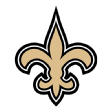
11. New Orleans Saints
Cardinals get: 1-11, 7-229
Saints get: 1-13, 3-77, 5-157
With the Saints looking at edge rushers and cornerbacks in a draft full of both -- and having two first-round picks -- they probably don't need to trade up. (That won't stop us from putting together one more crazy Saints trade.) Instead, they can trade down and pick up an additional draft pick by letting the Cardinals jump ahead of the Browns at 12. Arizona could be looking for help at safety, but more plausibly, this would be to take the first quarterback off the board.

12. Cleveland Browns
Rams get: 1-12, 3-65
Browns get: 2-37, 2018 first-round pick
I love these sort of challenge trades, although most teams aren't willing to pull them off. The Rams are in rough shape after their seemingly ill-fated move to trade up and grab Jared Goff last year, a decision that will hand the fifth and 100th picks in this year's draft to Tennessee. The Rams can be patient and eat their vegetables before returning to the first day of the draft next year, or they can rush back into the room and hope to turn things around. They have a blank space at tight end and could fall for O.J. Howard here.
If anyone is willing to take a risk, it's the Browns. For sacrificing the first-round pick they got from the Eagles in the Carson Wentz trade, Cleveland can move up 28 spots in this year's draft and bet that the Rams will be mediocre once again in 2017. If there's no future discount on the pick, this deal would be a net victory for the Browns if the 2017 Rams hand them the 18th pick (by Johnson's chart) or the 21st pick (by Stuart's chart) in the 2018 draft. Of course, it's more plausible that the 4-12 Rams struggle during their first year under coach Sean McVay, which could push Cleveland's pick into the top five in 2018.
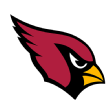
13. Arizona Cardinals
Broncos get: 1-13, 4-119, 2018 third-round pick
Cardinals get: 1-20, 5-177, QB Paxton Lynch
I just suggested the Cardinals could trade up from 11 if they're in love with a quarterback, but if they're not interested in anybody this year, let's get the Cardinals the quarterback they wanted last year to develop behind Carson Palmer. Arizona apparently wanted to draft Lynch in 2016, only for the Broncos to trade up and beat them to the punch. Lynch was underwhelming during his rookie season, failing to beat out Trevor Siemian, and the Broncos have since rebuilt their offensive coaching staff with Mike McCoy and Bill Musgrave returning to the organization.
If the Broncos have soured on Lynch at all (or are significantly confident Siemian will be their quarterback of the future), here's their chance to move on. This would cost them $4.4 million or so in additional dead money on their cap this year, but they would move up into the upper half of the first round with a chance to add an offensive piece such as top tight end O.J. Howard or top guard Forrest Lamp.

14. Philadelphia Eagles
Texans get: 1-14
Eagles get: 1-25, 2-57
The Colts and Ravens, who pick next after the Eagles, are likely to consider trading down and acquiring additional picks. As a result, teams that want to try to grab one of the quarterbacks in the middle of the first round might have to move up to Philadelphia's pick to beat the competition.
Enter the Texans, who are left with Tom Savage and Brandon Weeden under center after dumping Brock Osweiler's contract on the Browns earlier this offseason. Houston sent its 2018 second-round pick to the Browns for the salary relief, but it still has its 2017 second-rounder to move as part of a deal. The Eagles are desperately in need of cornerback help and could try to pry away 2015 first-rounder Kevin Johnson, who missed most of last year with an injury, but the Texans will be loath to trade away the future starter after losing A.J. Bouye to the Jags in March.
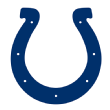
15. Indianapolis Colts
Dolphins get: 1-15, 4-137
Colts get: 1-22, 3-97, 2018 second-round pick
New Colts general manager Chris Ballard inherits Andrew Luck and precious little else after years of subpar drafts under Ryan Grigson, so his first priority will be stockpiling draft picks to fill out the roster. It's likely the Colts will trade down out of the 15th pick, and they have a natural match with the Dolphins, who are often interested in moving up to grab specific players. Miami is missing third- and fourth-round picks this year after trading up to draft Leonte Carroo last year, so they'll need to leverage the third-round pick they got as compensation for Olivier Vernon and send a second-rounder in next year's draft to move up seven slots. This could be a landing spot for guard Forrest Lamp or pass-rusher Derek Barnett if they're still around.

16. Baltimore Ravens
49ers get: 1-16, 6-186
Ravens get: 2-34, 4-109, 4-143, 2018 second-round pick
If the 49ers aren't confident about getting Kirk Cousins and want to draft one of the defensive stars with the second overall pick, here's a deal in which they get back into the middle of the first round to nab a quarterback. The Ravens are likely looking for pass-rushers and offensive linemen, and in this draft, it's better to go after those guys in the middle rounds. Ozzie Newsome should be effective at drumming up interest in this pick from teams looking at quarterback options, and while it would be tempting for the Ravens to trade this selection for San Francisco's 2018 first-rounder, my deal provides a mix of useful draft assets for a Baltimore team that is increasingly dependent upon guys playing out rookie deals.

17. Washington
Bengals get: 1-17, 4-123
Washington gets: 2-41, 3-73, QB AJ McCarron
I already said that the Bengals don't make many trades, but given the market for tall quarterbacks who have shown some moderate semblance of competence in small samples (see: Glennon, Mike), it might behoove the Bengals to explore their trade options for McCarron. Here, they move up and get an additional first-round pick as part of a deal which values their backup quarterback as roughly equivalent to a late second-round pick on the traditional Johnson depth chart.
McCarron is entering the final year of his rookie deal, which seems like a bad fit given that Washington might lose Kirk Cousins after this season, and he'll be a restricted free agent next offseason. The extra year of cost control provides Washington with leverage as it attempts to negotiate a deal with Cousins, and if it's unable to come to terms with their incumbent on an extension, McCarron could get the first crack at replacing him. Jay Gruden left Cincinnati just before McCarron arrived, but you would figure Gruden might be able to work out something and get a reliable scouting report on the Alabama product from former boss Marvin Lewis.

18. Tennessee Titans
Chargers get: 1-18, 3-83, 5-164, 2018 second-round pick
Titans get: 1-7
The Titans would surely like to come away with a wide receiver and a cornerback early in this draft, but with the likes of Mike Williams and Kevin King moving up draft boards, they may not wait until the 18th selection to go after the position they leave open at No. 7. It takes four picks for them to move up and procure a second top-seven selection, but by doing so, now the Titans could leave the draft weekend with immediate starters such as King in their lineup. It would be an aggressive move, but after initially trading down last year, general manager Jon Robinson then traded up to grab Jack Conklin and came away with a Pro Bowler.
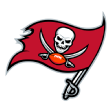
19. Tampa Bay Buccaneers
Browns get: 1-19, 2-50, 5-162
Buccaneers get: 1-12, 6-188
Jameis Winston already added a weapon this offseason when the Buccaneers signed DeSean Jackson in free agency. Now, let's nab him another tight end to work alongside Cameron Brate. Moving up from 19 to 12 puts the Bucs in line to grab either O.J. Howard or fast-rising athlete David Njoku, each of whom could interest several teams in the upper half of the draft and then Tennessee at 18. The Browns might not be willing to take the public relations hit of trading down from Myles Garrett with the first overall pick, but they're far more likely to use the first-round pick they acquired from the Eagles as a means to accrue even more capital.
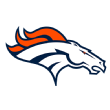
20. Denver Broncos
Colts get: 1-20, 3-82
Broncos get: 1-15
Regardless of whether they intend to start Trevor Siemian or Paxton Lynch at quarterback next season, the Broncos should probably do something in a big way at the tight end position. They've made half-measures -- drafting Jeff Heuerman in the third round of the 2015 draft, trading for A.J. Derby last season -- but they still need a pass-catching tight end to emerge alongside Virgil Green. Howard probably will be off the board by 15, but if the Broncos move up five picks, they should have a shot at adding David Njoku to the mix alongside Demaryius Thomas and Emmanuel Sanders.
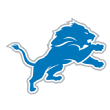
21. Detroit Lions
Browns get: 1-21, 5-165, 2018 first-round pick
Lions get: 1-12, 6-185, 2018 second-round pick (from Eagles)
One more trade up from a team acquiring Cleveland's 12th overall pick and I'll stop for now. The Lions are another team targeting cornerbacks, as D.J. Hayden is more of a reclamation project than a viable starter across from Darius Slay. This is a deep draft for corners, but the Lions probably have to think about jumping the line and hopping past Philadelphia, Indianapolis and Tennessee if they want to come away with someone like Kevin King.
Detroit also desperately needs pass-rushing help alongside Ziggy Ansah, and in a draft deep in pass-rushers, it probably doesn't want to dump multiple early 2017 picks to move up. Instead, the Lions can entice the Browns by swapping picks in 2018, a move which would leave the Browns with two first-round picks, two second-round selections and two fourth-rounders next year.
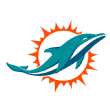
22. Miami Dolphins
Seahawks get: 1-22, 2018 fourth-round pick, CB Byron Maxwell
Dolphins get: CB Richard Sherman
The Dolphins aren't exactly shy about going after players they value, and they would be getting a massive upgrade at arguably the weakest position on their roster by trading for a future Hall of Fame cornerback in Sherman. Miami doesn't have a ton of cap room, but by packaging Maxwell and saving $3.5 million as part of the trade, the Dolphins should be able to squeeze the Stanford product onto their roster. Maxwell improved dramatically as the season went on in 2016, and he would give the Seahawks some semblance of familiarity as they rebuild at cornerback. There's also not a ton of risk, as Seattle would be able to cut Maxwell after the season without incurring any dead money.

23. New York Giants
Buccaneers get: 1-23, 3-87
Giants get: 1-19, 5-162
The Giants probably aren't in a position to trade a bunch of assets to move up into the top 10 and grab Leonard Fournette, but Christian McCaffrey should be a good fit for Ben McAdoo's one-back passing attack and might be available into the late teens. It's entirely possible that Denver general manager John Elway has his eyes on McCaffrey at 20, so the Giants might need to move up four spots if they want to upgrade on the duo of Shane Vereen and Paul Perkins.
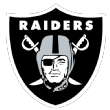
24. Oakland Raiders
Jets get: 1-24, 6-208
Raiders get: 2-39, 3-70
General manager Reggie McKenzie has generally placed a high value on amassing additional picks, and he should be in a good spot to trade down. The Texans are likely to be thinking quarterback at 25, so teams who want to jump ahead of them will be calling the Raiders at 24. If there's no pass-rusher worth lining up next to Khalil Mack available at 24, the Raiders can justify trading down and picking up more of those juicy mid-round picks. Meanwhile, the Jets might not be able to justify drafting somebody like Mitch Trubisky at No. 6, but if they can add an anchor in the secondary and then trade up to grab a quarterback late in the first round, Mike Maccagnan might be able to call that a successful draft.
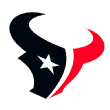
25. Houston Texans
Patriots get: 1-25, 2018 first-round pick
Texans get: QB Jimmy Garoppolo, 4-131, 2018 first-round pick
One more trade to get the Texans a quarterback. The Patriots probably wouldn't take the 25th pick for Garoppolo in a straight-up swap, but this trade also sees the Patriots and Texans swap first-round picks in 2018 in a deal that is likely to benefit the perennially excellent Patriots. (Imagine how bad this deal would look if Tom Brady tore his ACL in Week 1 again, though!)
Let's just throw one arbitrary but plausible possibility out there and suggest that the Texans finish with the 17th pick in the first round and the Patriots end up with the 30th selection. Without any discount for future years, this trade would value Garoppolo as equivalent to something between the 25th pick (Stuart chart) and 16th pick (Johnson chart). If the Texans sink with Garoppolo next year, though, the Patriots could be picking up a far more valuable asset.
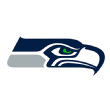
26. Seattle Seahawks
Vikings get: 1-26, 3-106
Seahawks get: 2-48, 3-79, 3-86
The Vikings don't have a first-round pick after sending it to Philadelphia in the Sam Bradford trade, but let's sneak them into Day 1 here in a swap that could make sense for both sides. The bottom of the Seahawks' roster is increasingly threadbare after being ravaged by years of free agency and traded picks, while the Vikings are relatively deep -- especially on defense -- and would love to find someone else who can immediately contribute along the offensive line. (Don't ask me why the Seahawks aren't interested in the same thing.) This swap leaves the Seahawks out of the draft until the 48th pick, but they would then have five picks between 49 and 90.
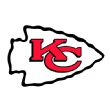
27. Kansas City Chiefs
Ravens get: 1-27, 2-59, 5-180
Chiefs get: 1-16, 3-99
Chiefs general manager John Dorsey comes from the Ted Thompson school and places plenty of value on draft picks, but the Chiefs may have an opportunity to acquire a franchise cornerstone at a position of need by trading up. Derrick Johnson is probably in his final year with the Chiefs after tearing his Achilles for the second time last season, and inside linebacker Reuben Foster probably won't make it to the bottom of the first round, even though he's had a rough pre-draft process. Foster could immediately step in for the Chiefs alongside Johnson while also playing a key role in coverage on passing downs.

28. Dallas Cowboys
Seahawks get: 1-28, 2018 fifth-round pick
Cowboys get: CB Richard Sherman
The Panthers' offer at No. 8 would be the high end of a return for Sherman. This, on the other hand, would be the lowest offer the Seahawks would likely be willing to accept for their franchise cornerback, and it might make the stomachs of Seattle fans churn. The Cowboys are likely to be competing with the Seahawks atop the NFC this season and in years to come, and Sherman would be a major upgrade at Dallas' weakest position. If the Seahawks are committed to removing Sherman from their locker room, though, the Cowboys are likely to be interested.
You don't need me to tell you that Sherman is the exact sort of superstar Jerry Jones wants to acquire. The Cowboys would go over the cap by acquiring Sherman, but they've already created some cap space for 2017 by extending Jason Witten, and Dallas could convert most of Dez Bryant's $13 million base salary into a signing bonus to create additional cap room. The Cowboys also could offer Sherman an extension that would begin next season, as the cornerback enters the final year of his deal, and Tony Romo's massive cap charge comes off the books.
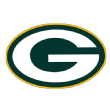
29. Green Bay Packers
Jaguars get: 1-29
Packers get: 2-35, 4-110, 7-222
When the 49ers traded up to grab guard Joshua Garnett last year, it exhibited how teams picking toward the top of the second round want to move into the bottom of the first round. In addition to shoving ahead of competitors who might also be interested in the same prospects, jumping into the bottom of the first round provides for a fifth-year option as part of your pick's rookie contract. Players taken in the second round have no such option at the end of their deals.
The Jags could move up here to grab an offensive player such as Forrest Lamp or David Njoku if they fall to the tail end of the first round.
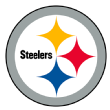
30. Pittsburgh Steelers
Colts get: 1-30, 3-94, 2018 second-round pick
Steelers get: 1-15, 5-158
Ben Roethlisberger isn't retiring this offseason, but even the most optimistic Steelers fan knows that the sun is setting on the future Hall of Famer's career. Smart teams prepare for this inevitability by finding their new quarterback before they're desperate to do so. It's possible that the Steelers could stick around at 30 and hope to land somebody like Patrick Mahomes, but they could trade up to the middle of the first round before anyone suspects they're in the quarterback market -- if they think somebody like Mitch Trubisky has franchise potential.
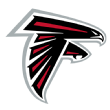
31. Atlanta Falcons
Dolphins get: 1-31
Falcons get: 2-54, 2018 first-round pick
After a great 2016 draft, the Falcons are sitting pretty. They have one of the deepest rosters in the league, franchise players on either side of the football and a steady cap situation. Their only significant hole is at guard, but this is a terrible draft for offensive linemen. Atlanta can trade down and use a later pick on a secondary pass-rusher to support Vic Beasley while waiting to draft its right guard of the future in what should be a better draft for offensive linemen next year.
Few teams would consider making this second-round and future first-round trade in 2017, but the Dolphins are the exception to many rules when it comes to player evaluation and valuation. Would they make this move for someone like Jabrill Peppers or Christian McCaffrey if they're still on the board at 31? It wouldn't be out of the question.

32. New Orleans Saints
Browns get: 1-11, 1-32, 2-42, 2018 third-round pick, 2019 first-round pick
Saints get: 1-1, 3-65, CB Joe Haden
This mock draft started with a crazy trade, so let's end with one, too. If the Saints want to go all-in with the best possible defense they can field in the final days of Drew Brees' career, here's their chance. Instead of trading for Butler, they make their move for a veteran cornerback in Haden, who is signed for three years and $39.3 million. The Saints probably have to rework Haden's contract to get him under the cap, but they were already going to perform cap gymnastics to fit Butler in. They also upgrade their biggest hole on defense with the best player in the draft. Suddenly, the Saints have Myles Garrett, Nick Fairley and Cameron Jordan rushing the quarterback with Haden and Delvin Breaux at cornerback.
By including Haden, the Browns get a haul closer to the sort of deal a team would get when there's a compelling quarterback available at No. 1. They end up with three first-rounders (admittedly one of which is the worst possible first-rounder) and a second-round selection from the Saints, although the timing is what makes this deal interesting for both sides. The Saints don't have to feel the punishment of dealing away that final first-rounder until 2019, at which point they might already be rebuilding, anyway. That could be a feature for the Browns; if Brees retires or leaves New Orleans after 2017 or 2018, that 2019 first-rounder could be a top-five pick.
Would I make this trade if I were on either side? Probably not. The Saints can use the picks they have to draft young talent at corner and edge rusher, although I would be skeptical of their abilities to bring through young talent after having had some development disasters in recent years. The Browns are probably better off just drafting Garrett and hoping Haden is a defensive anchor as the Cleveland defense around him improves. Is it at least feasible that each of these teams would consider this trade? Absolutely. And for a very silly mock draft, that's good enough.
